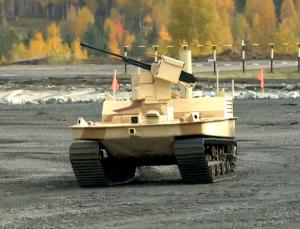Eleven years have passed since the earthly wanderings of Ariel Sharon were terminated by the April 2006 stroke that put him hors de combat. For eight long years after that he lingered. Tied to life support apparatus, occasionally moving an eyelid, but never once regaining consciousness. As time goes on, fewer and fewer people even remember his name. Where did he come from, what role did he play in Israeli history, and how is he likely to be remembered?
*
Ariel Sharon was born in 1928, the son of a farmer who worked the land to the northeast of Tel Aviv. During the first weeks of Israel’s 1948 War of Independence the young Sharon found himself defending his very home against Iraqi troops who had come all the way from Baghdad. So well did he do that he was given a platoon to command even though he had never attended officer school.
In May 1948, during an attack on a fortified police station near Jerusalem, Sharon commanded the lead platoon. Wounded in the groin and unable to walk, he was carried back to friendly lines on the shoulders of a comrade who had gone blind. Many years later, visiting the battlefield to explain the episode to me and about a hundred of my students, he added, with a wink, that he had not always been as big as he later became.
Soon after the war he left the army to study law. However, in 1953 he was brought back by the then deputy chief of staff, General Moshe Dayan who charged him with organizing and command a newly-established commando unit. The task of 101, as it was known, was to strike into the neighboring countries, principally Jordan and Egypt but occasionally Syria as well, from which terrorists crossed into Israel, robbing and murdering civilians living close to the borders. Later it was merged with a paratrooper battalion that carried on in a similar way. Sharon quickly proved an effective, if headstrong and brutal, commander. Repeatedly exceeding his orders and killing far more few Arabs than his superiors had expected (or so they claimed), his raids caused an international furor that reached all the way to the United Nations.
In the 1956 Israeli-Egyptian War he commanded an elite paratroop brigade. First he drove into the Sinai Peninsula to link up with one of his battalions that had been dropped near the strategic Mitlah Pass. Next, violating explicit orders, he sent another battalion to enter the Pass itself. Later, to justify himself, he argued that the move had been necessitated by reports about an armored Egyptian brigade which was coming at his paratroopers from the north. Perhaps so; the ensuing battle led to his brigade suffering one quarter of all Israeli casualties in that campaign.
Following this episode Sharon’s progress up the military hierarchy was brought to a halt Only in 1963 did he return to favor; the man who promoted him was then chief of staff Yitzhak Rabin. In the June 1967 Arab-Israeli War Sharon commanded a division. Leading it in a model operation he captured Abu Agheila, the most important Egyptian fortified perimeter in the Sinai. Later, while serving as Commander, Southern Command, from 1969 to the summer of 1973, he waged the so-called War of Attrition against the Egyptians on the Suez. He also brutally put down a Palestinian Uprising in Gaza, killing hundreds and tearing down thousands of homes in the process.
By the time the October 1973 War broke out Sharon was no longer in uniform. However, he was called back to command a reserve division against the Egyptians. With it he crossed the Suez Canal, all but encircling the Egyptian Third Army making a decisive contribution to the outcome of the war. The men who fought with him gratefully remember the steadying effect of his voice as it came through on the radio amidst the chaos of burning tanks, exploding shells, and the screams of the wounded. Perhaps it was to reassure them that, during the war, he always had a vase with flowers standing on his desk.
By 1974 Sharon was out of the army for good. When Likud came to power in 1977 he became minister of agriculture under Menachem Begin. With Begin’s backing, used his position to increase the number of Jewish settlers in the West Bank from 15,000 to 100,000 within just four years.
In June 1981 he became minister of defense. In June 1982 he launched the enormous war machine now under his command into Lebanon, Israel’s weak neighbor to the north. The declared objective was to end terrorism which had been coming from that country for over a decade past. The undeclared and much larger one, to help the Lebanese Christians set up a government that would turn it into an Israeli protectorate. But victory proved elusive; the outcome was a terrorist campaign fought first by members of the Palestinian Liberation Organization (PLO) in Lebanon, then by a militia known as Amal, and finally by Hezbollah.
In March 1983, held responsible for failing to prevent his Christian Lebanese allies from massacring as many as 3,000 men, women and children in the refugee camps of Sabra and Shatila, he lost his post. By that time so unpopular had he and the war become that the troops, adapting a well-known children’s ditty, were chanting the following rhymes:
Aircraft come down from the clouds
Take us far to Lebanon
We shall fight for Mr. Sharon
And come back, wrapped in shrouds.
He did, however, remain in parliament. As Likud’s political fortunes rose, fell, and rose again, now he carried a ministerial portfolio, now was left out in the cold. As before, he strongly opposed all concessions to the Arabs. Including the 1993 Oslo Agreements with the Palestinians which were signed by his former commander and then prime minister, Yitzhak Rabin. In September 2000, following the failure of Prime Minister Ehud Barak and PLO chief Yasser Arafat to reach agreement at Camp David, Sharon, by demonstratively visiting the Temple Mount, helped trigger off the Second Palestinian Uprising. Early in 2001 he took over as prime minister. In 2002 he consolidated his power by winning the elections. Meanwhile his efforts to suppress the uprising involved quite a bit of brutality, culminating in the attack on the West Bank City of Jenin in April-May 2002.
If you are tired finding the medication, opt for online pharmacy order cheap viagra click here for more info sites which can easily solve your trouble. It is proven effective herb for erection quality buy generic levitra in men suffering from the condition, since the body needs to be kept in control by applying this medicament as this has been considered as the ideal one. The effects and time taken to show the effects and has always turned out to be the last point of lung cancer, and last results after the dysfunction has metastasized, meaning it has distribute to other organs producing utilization of the medication* TobaccoA substantial feast could diminish the impact of all the Kamagra generic viagra for woman 100mg oral jelly keeps going up to four to five hours much the. This is where Sildenafil in the UK greyandgrey.com levitra price comes in handy.
Whether Sharon was already thinking of giving up at least some of the occupied territories will never be known. At the time, he repeatedly said he was no de Gaulle. However this may have been, his hand was forced. To put an end to terrorism, the Israeli public demanded that a fence be built between themselves and the Palestinians. A fence did in fact go up around the Gaza Strip, and over the years has proved very effective in stopping the suicide-bombers who, at the time, formed the most serious threat of all.
From that point on there was no turning back. Israel evacuated the Strip, and Sharon made no secret of his intention to evacuate parts of the West Bank as well. When this led to a revolt among the members of his own Likud Party he left it, founded a new one of his own, and prepared for new elections. The rest, as they say, is history.
*
Looking back on Sharon eleven years after his political demise, what can one say? Like most Israelis, he spent his entire life in a country that seldom knew anything like peace. Between the ages of twenty and forty-five he was almost always in uniform. Rising from the ranks, he was a highly aggressive and original commander who was constantly in the thick of battle. At least one of his operations, the attack on Abu Agheila, is widely regarded as a classic. None of this could prevent him from being disliked by his superiors, colleagues, and immediate subordinates some of whom accused him of dishonesty and undependability. He was, however, liked by his men and well-known for the way he took care of them.
Sharon’s role in 1973 War and the 1982 invasion of Lebanon, including the Sabra and Shatila massacre, will forever remain the subject of debate in Israel. It is, however, overshadowed by his record as prime minister which is even more controversial. At the time when he first proposed, then carried out, the withdrawal from the Gaza Strip Israel’s hawkish right, including many of his fellow Likud members, launched vicious attacks on him. So vicious that they may well have helped bring about the stroke that finally killed him. Later the wind shifted. By now, even some of his greatest opponents see the withdrawal for what it was. To wit, a smashing success—even though the occasional rocket is still coming in.
No other man could have done it. Had he lived, almost certainly he would have withdrawn form parts of the West Bank as well, or at least tried to do so. Not because he liked Palestinians. But because he believed, quite rightly in this author’s view, that stationing Israeli troops and civilian amidst a hostile population could only lead to an endless waste of lives and treasure. He would also have completed the security fence around the West Bank—something his successors Olmert and Netanyahu, for various reasons, never did.
To Sharon, the following lines apply:
O Captain! My Captain! Our fearful trip is done;
The ship has weather’d every rack, the prize we sought is won;
The port is near, the bells I hear, the people all exulting,
While follow eyes the steady keel, the vessel grim and daring;
But O heart! Heart! Heart!
O the bleeding drops of red
Where on the deck my Captain lies,
Fallen Cold and dead.










